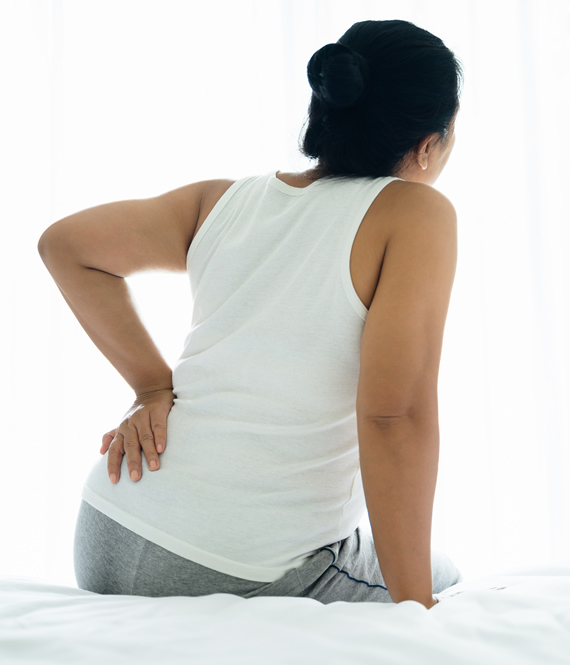
How to Tell if Your Hip is Broken After a Fall
We recommend helpful products in our articles. Read our full disclosure here. The content on this website is not intended to be a substitute for professional advice, diagnosis, or treatment.
A broken hip, medically referred to as a hip fracture, is a serious injury, particularly common among the elderly due to the increased likelihood of falls and decreased bone density.
Determining whether a hip is broken following a fall is crucial, as prompt medical evaluation and treatment are essential for optimal recovery and to mitigate complications.
Individuals who have suffered a fall should be attentive to specific symptoms and seek immediate medical care if a hip fracture is suspected.
Typical signs of a fractured hip include severe pain in the hip or groin area, an inability to put weight on the leg on the side of the injured hip, and stiffness or bruising in the surrounding tissue.
The leg may also appear shorter or turned outward on the side of the injured hip.
While these symptoms do not conclusively confirm a broken hip, their presence warrants immediate medical attention.
Diagnosis of a hip fracture typically involves a physical examination and imaging tests, such as X-rays or MRI scans, to provide a definitive answer and guide treatment options.
Identifying Signs and Symptoms
Recognizing a broken hip after a fall is critical.
The following symptoms can indicate a serious injury that requires immediate medical attention.
Physical Indicators of a Broken Hip
- Swelling and Bruising: These are often visible signs of a broken hip.
- Deformity: The leg may appear shorter on the side of the injured hip or turned outward.
- Inability to Lift, Move, or Rotate the Leg: Attempting to perform these movements can cause severe pain.
Pain Assessment and Localization
- Intensity of Pain: The pain is typically severe and can increase with movement.
- Pain Location: Often felt in the groin or front of the thigh; might also radiate to the knee.
Mobility Impairment and Functional Limitations
- Weight Bearing Difficulty: There is often an inability to stand or bear weight on the affected side.
- Impact on Daily Activities: Actions such as walking, bending, and sitting can be noticeably hindered.
Medical Evaluation and Treatment
After a fall, it’s crucial to seek immediate medical evaluation to accurately diagnose a hip fracture.
Proper treatment can then be administered, leading to better outcomes and potential qualifying for injury compensation.
Diagnosis through Imaging Techniques
Medical professionals typically use a variety of imaging techniques to diagnose a hip fracture. X-rays are the most common method, providing clear images of bone structure and revealing any breaks.
In some cases, a CT scan or MRI may be necessary to obtain more detailed visuals, especially if the fracture is not clearly visible on an X-ray.
Surgical Interventions
If a hip fracture is confirmed, surgery is often required.
The type of surgical intervention depends on the location and severity of the fracture.
Surgical options include internal fixation, where hardware is used to hold the bone together during healing; a partial hip replacement, which replaces the femoral head; or a total hip replacement, involving the replacement of the femoral head and the acetabulum.
The patient’s overall health and the potential for future mobility are considered when deciding on surgery.
Read more: 24 Cutting-Edge Advances in Hip Replacement Technology
Postoperative Recovery and Rehabilitation
Recovery from hip surgery involves a structured rehabilitation program that usually includes physical therapy.
The goals of rehab are to restore mobility, strengthen the hip, and prevent further injury.
Rehabilitation may begin within a day after surgery and continue for several months.
It is also at this stage that the patient may pursue compensation for injuries, if the fall was due to another party’s negligence.
Can Attorney Help If Someone Is Responsible For Your Fall?
If you fall and break your hip, especially if the fall occurred due to someone else’s negligence or unsafe conditions on a property, a lawyer can provide several crucial services to support you through this difficult time.
- Legal Advice: A lawyer can offer expert legal advice on your situation, explaining your rights and options.
They’ll help you understand the complexities of personal injury law and how it applies to your case.
- Investigation: Lawyers can conduct a thorough investigation into the circumstances surrounding your fall.
They can gather evidence, interview witnesses, and obtain surveillance footage if available to build a strong case on your behalf.
- Liability Assessment: Your attorney will determine who is potentially liable for your injuries.
This could be a property owner, a business, a municipality, or other entities depending on where and how the fall occurred.
- Deal with Insurance Companies: Lawyers can handle all communications with insurance companies, who often try to minimize payouts.
An experienced lawyer will negotiate to ensure that the insurance company’s settlement offer is fair and covers your needs.
- Medical Documentation: They can help you compile all necessary medical documentation that details the extent of your injuries, treatments received, and prognosis.
This documentation is crucial for proving the impact of your injury on your life.
Don’t delay.
Reach out to a lawyer right away.
Conclusion
It’s very important to notice and react to the signs of a broken hip after a fall to get better.
The symptoms of a hip fracture, such as severe pain, swelling, bruising, and mobility impairment, demand immediate medical attention for accurate diagnosis and effective treatment.
Early medical intervention, typically involving imaging tests and possibly surgery, plays a crucial role in recovery and rehabilitation, helping individuals regain mobility and reduce the risk of future injuries.
Additionally, understanding the legal aspects and potential for compensation, particularly if the fall was due to negligence, highlights the importance of consulting with a lawyer.
Such legal support can significantly aid in navigating the complexities of personal injury law, securing fair compensation, and focusing on recovery.
Overall, the blend of prompt medical care, surgical intervention when necessary, and skilled legal assistance form the cornerstone of a comprehensive approach to managing the consequences of a hip fracture resulting from a fall.
"We love to research problems, examine studies, analyze solutions, and share with you ideas that make life healthier. You can learn about us and our editorial standards here. Have suggestions or feedback to share? Send us a message!."













Leave a Comment